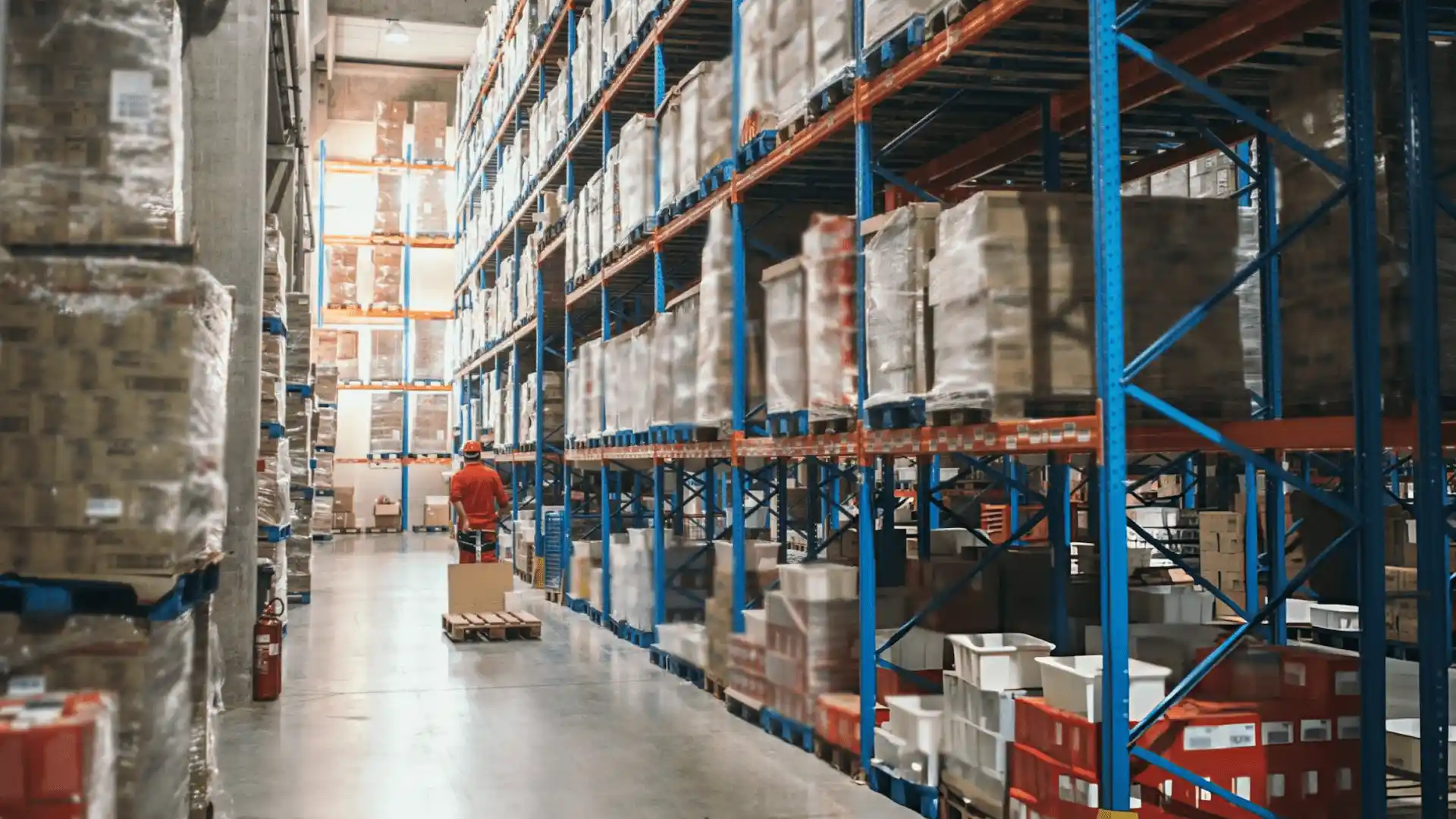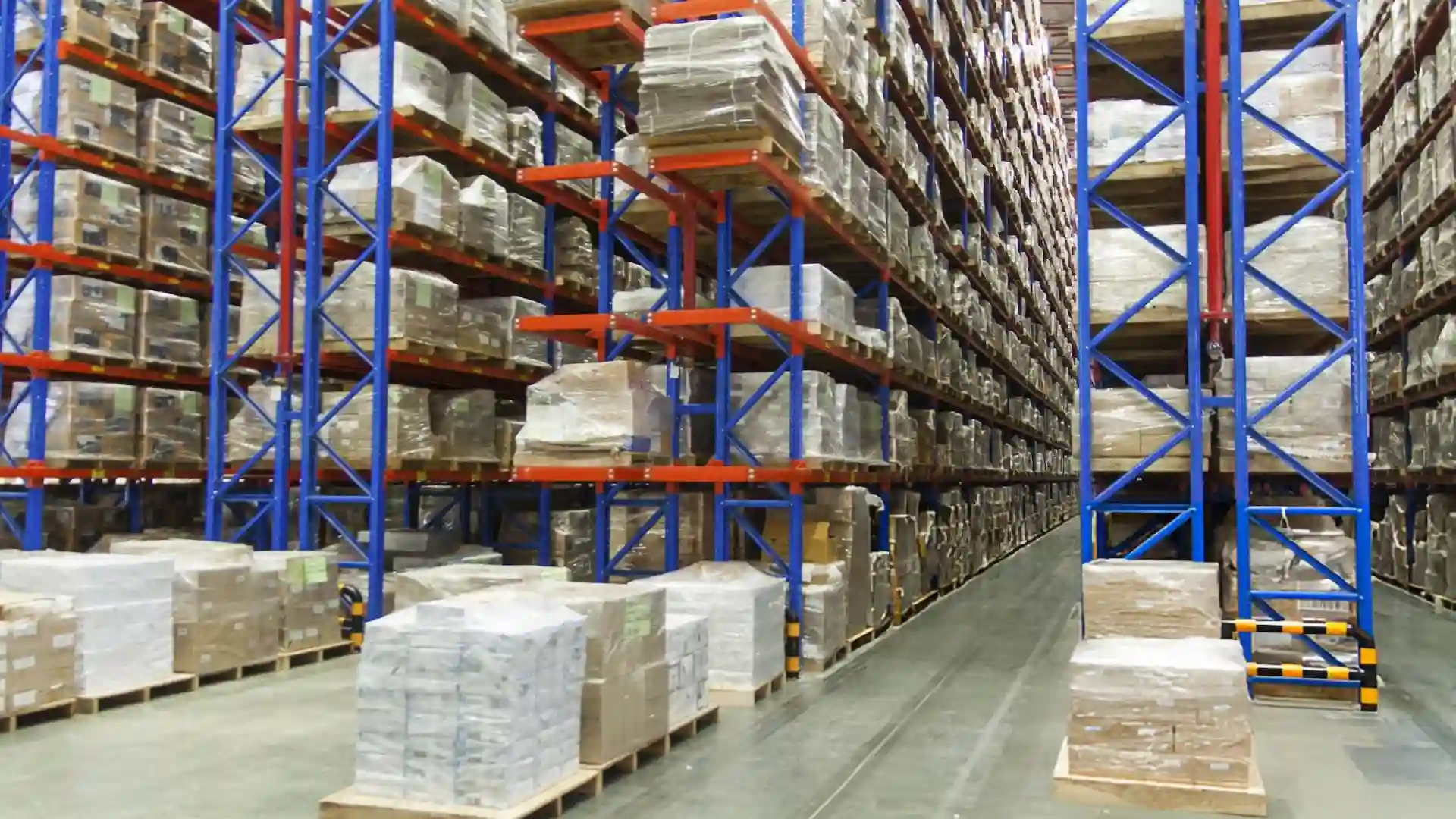TikTok Sellers: Guidelines, Eligibility, and Everything You Need to Know

TikTok has quickly become a hub for creativity, entertainment, and now, e-commerce. With the rise of TikTok Shop, brands and creators alike have found a new avenue to reach a massive audience and sell products directly within the app. To see how Atomix Logistics supports innovative platforms like TikTok Shop with seamless fulfillment solutions, explore how it works. But what does it take to become a TikTok seller? What are the guidelines and eligibility criteria you need to meet? In this comprehensive guide, we'll explore the ins and outs of TikTok Shop, from eligibility requirements to the specifics of managing your store.
What is TikTok Shop?
TikTok Shop is an integrated e-commerce feature within the TikTok app that allows businesses and individual creators to sell products directly to users. This feature enables sellers to create a seamless shopping experience, where viewers can discover, browse, and purchase products without leaving the app. TikTok Shop is more than just a marketplace—it's a new way to connect with your audience, build brand loyalty, and drive sales.
TikTok Shop Eligibility: Who Can Sell on TikTok?
Before diving into the details of setting up a TikTok Shop, it's essential to understand the eligibility criteria. TikTok Shop is open to a variety of sellers, including brands, individual creators, and even small businesses. However, there are specific requirements that you need to meet to be eligible.
TikTok Shop Eligibility Requirements
- Location: TikTok Shop is not available worldwide yet. It's currently accessible in select regions, including the USA, UK, and certain Southeast Asian countries. If you're wondering "where is TikTok Shop available?" it's crucial to check if your country is on the list of supported regions before proceeding.
- Business Verification: Sellers must verify their business to gain access to TikTok Shop. This process involves providing necessary documentation, such as a business license, tax identification number, and, in some cases, a US Certificate of Conformity for TikTok Shop. This certificate ensures that the products meet all regulatory standards.
- Product Compliance: TikTok Shop has strict guidelines regarding what can and cannot be sold on the platform. Sellers must ensure that their products do not fall under TikTok's prohibited products list, which includes items like weapons, counterfeit goods, and certain health products. Understanding the TikTok Shop prohibited products guidelines is crucial to avoid any compliance issues.
- Adherence to TikTok Shop Rules: Compliance with TikTok Shop rules is mandatory for all sellers. These rules include adhering to customer service standards, respecting intellectual property rights, and following fair pricing practices.
Setting Up Your TikTok Shop: Step-by-Step Guide
Now that you understand the eligibility requirements, let's walk through the steps to set up your TikTok Shop.
1. Create a TikTok Business Account
The first step is to create a TikTok Business Account if you don't already have one. This type of account offers more features than a standard account, including access to TikTok's advertising tools and the ability to set up a TikTok Shop.
2. Apply for TikTok Shop Access
Once your business account is set up, you can apply for TikTok Shop access. The application process will require you to provide detailed information about your business, including verification documents. It's essential to ensure all your information is accurate and up-to-date to avoid delays in approval.
3. Set Up Your Product Listings
After gaining access to TikTok Shop, you can start setting up your product listings. Each product needs to be accurately described, with high-quality images and clear pricing information. Remember to comply with the TikTok Shop requirements for listing products, including any specific regulations in your region.
4. Link Payment and Shipping Methods
TikTok Shop requires sellers to link their payment methods and set up shipping options. TikTok partners with various payment providers to ensure smooth transactions. Make sure to choose a reliable shipping provider that meets TikTok's delivery standards to ensure customer satisfaction. Discover how Atomix Logistics offers competitive order fulfillment pricing to help TikTok Shop sellers streamline their shipping and logistics.
5. Promote Your TikTok Shop
Once everything is set up, it's time to promote your TikTok Shop. Use TikTok's powerful advertising tools and leverage organic content to drive traffic to your shop. Engaging with your audience through live streams, TikTok videos, and creative campaigns can significantly boost your visibility and sales.
How Many TikTok Shops Can You Have?
A common question among sellers is, "how many TikTok shops can I have?" TikTok currently allows one shop per business account. This limitation ensures that sellers focus on maintaining the quality and compliance of their shop. However, if you operate multiple businesses, each with a separate legal entity, you can apply for multiple TikTok Shops under different business accounts.
How Much Does TikTok Shop Take?
Understanding the cost structure of TikTok Shop is crucial for planning your pricing strategy. TikTok charges a commission on each sale made through the platform. So, how much does TikTok Shop take? The commission rate varies depending on the region and the type of product sold, but it typically ranges from 5% to 8% of the total sale amount. Additionally, there may be transaction fees associated with payment processing. It's essential to factor these costs into your pricing to maintain profitability.
TikTok Shop Guidelines and Prohibited Products
As mentioned earlier, TikTok Shop has a list of prohibited products that sellers must adhere to. But what exactly falls under TikTok's prohibited products list?
TikTok Shop Prohibited Products Guidelines
TikTok's prohibited products list includes, but is not limited to:
- Illegal or Regulated Products: This category includes drugs, alcohol, tobacco, firearms, and certain health supplements.
- Counterfeit Goods: Any product that infringes on intellectual property rights, such as fake designer items, is strictly banned.
- Hazardous Materials: This includes items that could pose a risk to health and safety, such as explosives or toxic chemicals.
- Offensive or Inappropriate Content: Products that promote hate speech, violence, or discrimination are not allowed on TikTok Shop.
TikTok Shop Seller Requirements and Customer Service
To maintain a positive shopping experience, TikTok enforces stringent seller requirements and customer service standards.
TikTok Shop Seller Requirements
- Accurate Product Descriptions: Sellers must provide detailed and truthful descriptions of their products. Misleading information can lead to customer dissatisfaction and penalties from TikTok.
- Timely Shipping: Orders must be shipped within the time frame specified during the listing process. Delays can result in negative reviews and potential suspension of your shop.
- Responsive Customer Service: Sellers are expected to provide timely and professional customer service. This includes responding to inquiries, processing returns, and handling complaints. TikTok Shop's seller customer service guidelines emphasize the importance of maintaining high satisfaction rates. Atomix Logistics offers 3PL order fulfillment services to ensure TikTok Shop sellers meet stringent customer service and shipping requirements.
TikTok Shop Creator Requirements
For individual creators looking to leverage their TikTok presence for sales, there are specific requirements to meet.
- Follower Count: While TikTok doesn't explicitly state a minimum follower count, having a substantial and engaged audience increases your chances of success.
- Content Compliance: Creators must adhere to TikTok's community guidelines, ensuring their content remains appropriate and relevant to their audience.
- Brand Partnerships: Creators looking to sell branded products must have the necessary permissions and agreements in place. This is especially important for affiliate marketing or collaborations.
TikTok Shop Support and Resources
If you encounter any issues while setting up or managing your TikTok Shop, TikTok provides a support team to assist sellers. The TikTok Shop support team can help with technical issues, compliance questions, and general guidance on maximizing your shop's potential. Additionally, the TikTok Shop website offers a wealth of resources, including FAQs, tutorials, and best practice guides.
TikTok Shop Requirements in the USA
For sellers based in the USA, there are specific requirements to consider:
- Tax Compliance: Sellers must ensure they are compliant with federal and state tax regulations. This includes collecting sales tax where applicable.
- Product Certification: Certain products may require additional certification, such as the US Certificate of Conformity, to ensure they meet safety and regulatory standards.
Conclusion
TikTok Shop offers a powerful platform for businesses and creators to tap into a vast and engaged audience. However, succeeding on this platform requires understanding and adhering to TikTok Shop guidelines, ensuring product compliance, and maintaining excellent customer service. By following the steps outlined in this guide, you can create a thriving TikTok Shop that boosts your sales and enhances your brand's reputation.
If you're looking for a reliable partner to handle your TikTok Shop fulfillment, consider reaching out to Atomix Logistics. We specialize in seamless fulfillment services tailored for TikTok Shop sellers, ensuring that your products reach customers quickly and efficiently. Get your fulfillment quote today! Learn more about Atomix Logistics and how we support TikTok Shop sellers on our About Us page.
TikTok Shop FAQs
How Many TikTok Shops Can I Have?
TikTok currently allows only one TikTok Shop per business account. However, if you operate multiple businesses, each with its own legal entity and business account, you can manage multiple TikTok Shops under different accounts. This limitation ensures that sellers maintain a high standard of quality and compliance for each shop.
How Much Does TikTok Shop Take from Each Sale?
TikTok charges a commission on each sale made through TikTok Shop. The commission rate typically ranges between 5% and 8% of the total sale amount, depending on the region and product category. Additionally, sellers should be aware of any transaction fees associated with payment processing, which can also affect the overall cost.
What Are the Requirements for TikTok Shop in the USA?
To set up a TikTok Shop in the USA, sellers need to verify their business by providing a valid business license, tax identification number, and, if applicable, a US Certificate of Conformity. Compliance with local tax regulations and adherence to TikTok’s product guidelines are also required to maintain eligibility and avoid penalties. Explore how Atomix Logistics’ unique fulfillment model helps TikTok Shop sellers in the USA navigate tax compliance and logistics efficiently.
What Products Are Prohibited on TikTok Shop?
TikTok has a strict list of prohibited products, including illegal items, counterfeit goods, hazardous materials, and products that promote hate speech or violence. Sellers must review TikTok’s prohibited products guidelines regularly to ensure their listings remain compliant and to avoid the risk of suspension or banning from the platform.
How Can I Contact TikTok Shop Support?
If you encounter any issues with your TikTok Shop, such as technical difficulties or compliance questions, you can reach out to the TikTok Shop support team for assistance. The support team is available through the TikTok Shop website, where you can also find helpful resources, FAQs, and tutorials to guide you through common issues.

.svg)
.svg)
.svg)




